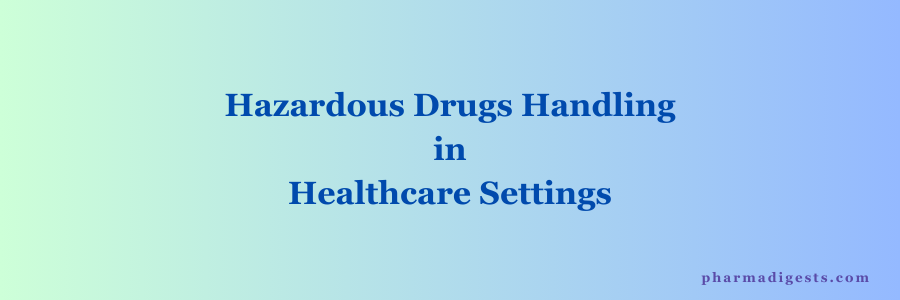USP General Chapter- 800 provides standards for safe handling of hazardous drugs to minimize the risk of exposure to healthcare personnel, patients and the environment.
The National Institute for Occupational Safety and Health (NIOSH) considers a drug to be hazardous if it exhibits one or more of the following characteristics in humans or animals:
- carcinogenicity,
- teratogenicity or developmental toxicity,
- reproductive toxicity,
- organ toxicity at low doses,
- genotoxicity, or
- structure and toxicity profiles of new drugs that mimic existing hazardous drugs.
USP General Chapter <800> describes requirements including responsibilities of personnel handling hazardous drugs;
- facility and engineering controls;
- procedures for deactivating, decontaminating and cleaning;
- spill control; and
- documentation.
These standards apply to all healthcare personnel who receive, prepare, administer, transport or otherwise come in contact with hazardous drugs and all the environments in which they are handled.
General Chapter <800> is informational and not compendially applicable.
USP Education – Courses on Compounding and Handling Hazardous Drugs Available as on-demand and live offerings. Live courses are offered twice a year.
Visit USP Events Calendar for scheduled USP Education courses.
The course will describe the standards to protect personnel, patients, and the environment when handling hazardous drugs (HDs).
Handling HDs includes, but is not limited to, the receipt, storage, compounding, dispensing, administration, and disposal of sterile and nonsterile products and preparations.
The course will provide an overview of the chapter and describe personnel responsibilities and educational expectations.
It will also cover facility design, engineering control, and documentation requirements.
Read also:

